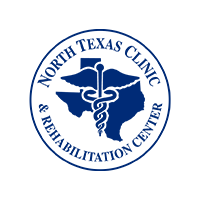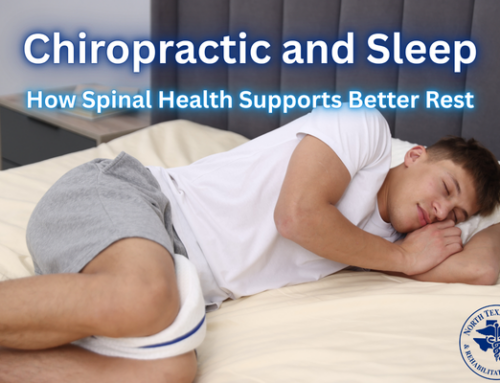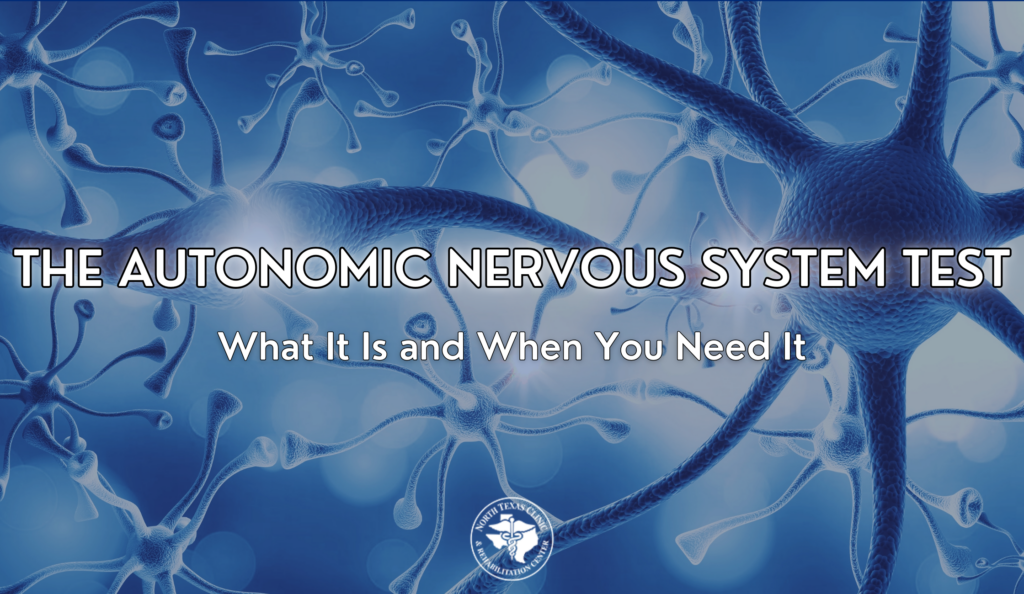
Our bodies operate through a large and delicate balance of systems, one of which is the autonomic nervous system, or ANS. This system controls the involuntary physiological functions that keep you alive. When your healthcare provider recommends an autonomic nervous system test, they want to make sure that it is functioning properly.
However, this doesn’t mean you need to worry, at least not yet.
There are many conditions and problems that ANS testing can diagnose. Some are relatively minor problems easily managed with lifestyle changes or medications. Others could be more serious, but knowing what’s happening will help you find the proper treatment.
First, it helps to understand what the ANS system does and how the autonomic nervous system test works.
What is the Autonomic Nervous System?
The ANS is a part of the larger nervous system, including your brain and spinal cord (the central nervous system) and all the other nerves, roots, branches, and neuromuscular junctions that comprise the peripheral nervous system.
Your peripheral nervous system is then divided again into the somatic and autonomic. The somatic nervous system involves the muscles you voluntarily control and most of your senses.
Finally, the autonomic nervous system is further divided into three main branches: the sympathetic, parasympathetic, and enteric nervous systems. These three branches work together to support at least some of the involuntary functions of every system in your body, including your immune, digestive, respiratory, cardiovascular, and reproductive systems.
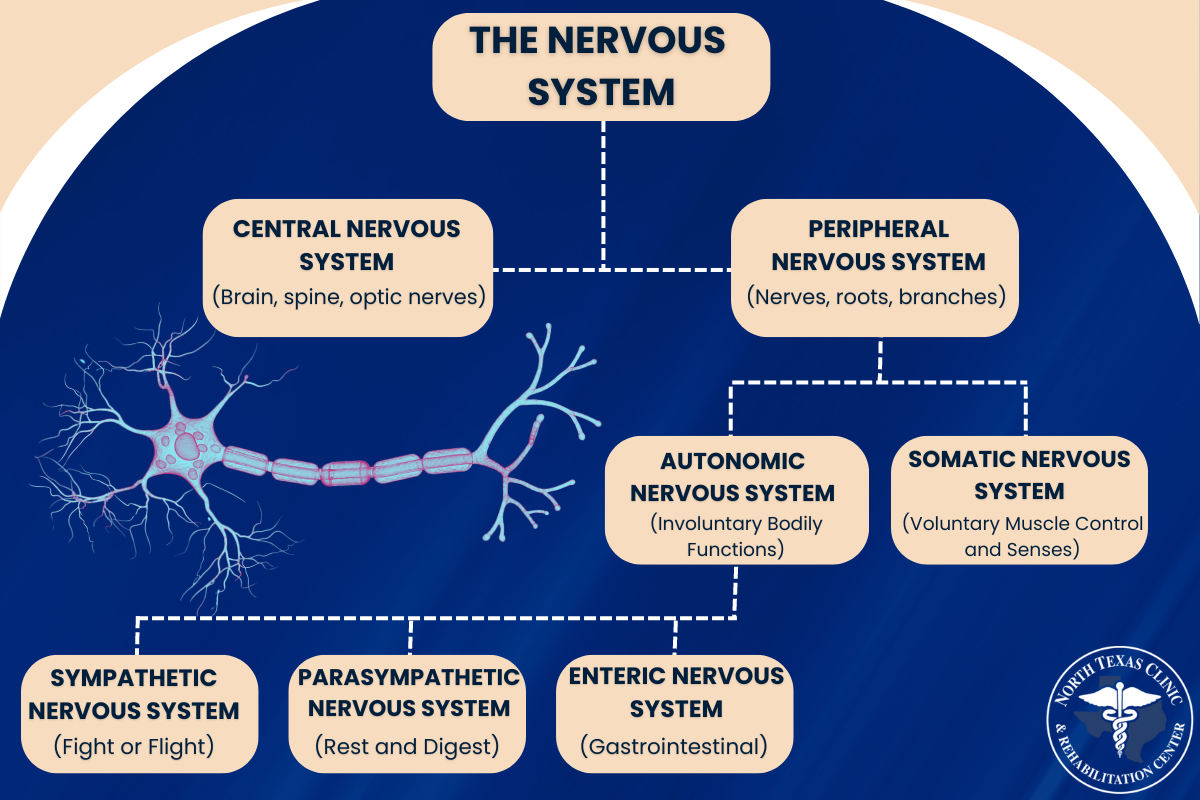
Sympathetic Nervous System
The sympathetic system prepares the body for ‘fight or flight’ responses. This system is triggered when the brain detects a potential threat or stressor, resulting in a flood of hormones that prepare the body to either flee to safety or face danger.
Among other things, your heart rate and breathing increase, your muscles prepare for action, and your other bodily functions slow down until the danger has passed.
Parasympathetic Nervous System
That’s when the parasympathetic system kicks in with your body’s ‘rest and digest’ activities.
These functions include undoing the stressful reactions that your sympathetic nervous system started, including slowing your heart rate and breathing and calming. It also restarts your digestive and urinary needs and other ‘lower level’ functions that you don’t need when in danger.
When functioning correctly, these two systems create a perfect balance.
Enteric Nervous System
Last but certainly not least, the ANS also includes your enteric nervous system.
The ENS manages your digestive system. But there’s much more to it than just digesting and excreting food.
This complex system in your gastrointestinal tract has up to 600 million neurons. These neurons control gastric acid secretions, blood flow to the gut, gastrointestinal hormone balance, and other vital gut-related functions.
Together, these systems maintain homeostasis by regulating bodily functions without any conscious effort on your part.

What is an Autonomic Nervous System Test?
An autonomic nervous system test, or ANS test, is a series of evaluations designed to assess the functioning of your autonomic nervous system. These tests measure how well the ANS regulates various involuntary functions, providing valuable insights into the balance between the sympathetic and parasympathetic systems.
Components of ANS Testing
- Heart Rate Variability (HRV) Test — Heart rate variability measures the amount of time between consecutive heartbeats and how those times change based on different stimuli. This noninvasive test measures those variations to detect possible heart problems, mental health issues, and other imbalances between the sympathetic and parasympathetic systems.
- Tilt Table Test — This test evaluates how the body responds to changes in position. The patient lies on a table that tilts to various angles while heart rate and blood pressure are monitored. This helps diagnose conditions like orthostatic hypotension and postural orthostatic tachycardia syndrome (POTS).
- Quantitative Sudomotor Axon Reflex Test (QSART) — The QSART measures how well the nerves that control sweating function. Small electrical currents stimulate sweat glands to help diagnose conditions like small fiber neuropathy.
- Valsalva Maneuver — Also known as ‘bearing down,’ this assessment involves blowing into a mouthpiece (or attempting to blow while holding their nose and glottis closed) to create pressure. During the 10-15-second maneuver, your provider monitors your heart rate and blood pressure. It assesses cardiovascular health and the baroreflex function, which is crucial for maintaining blood pressure stability.
- Deep Breathing Test — During this test, you simply breathe deeply and regularly while your heart rate is monitored. The heart rate response to deep breathing assesses parasympathetic nervous system function.
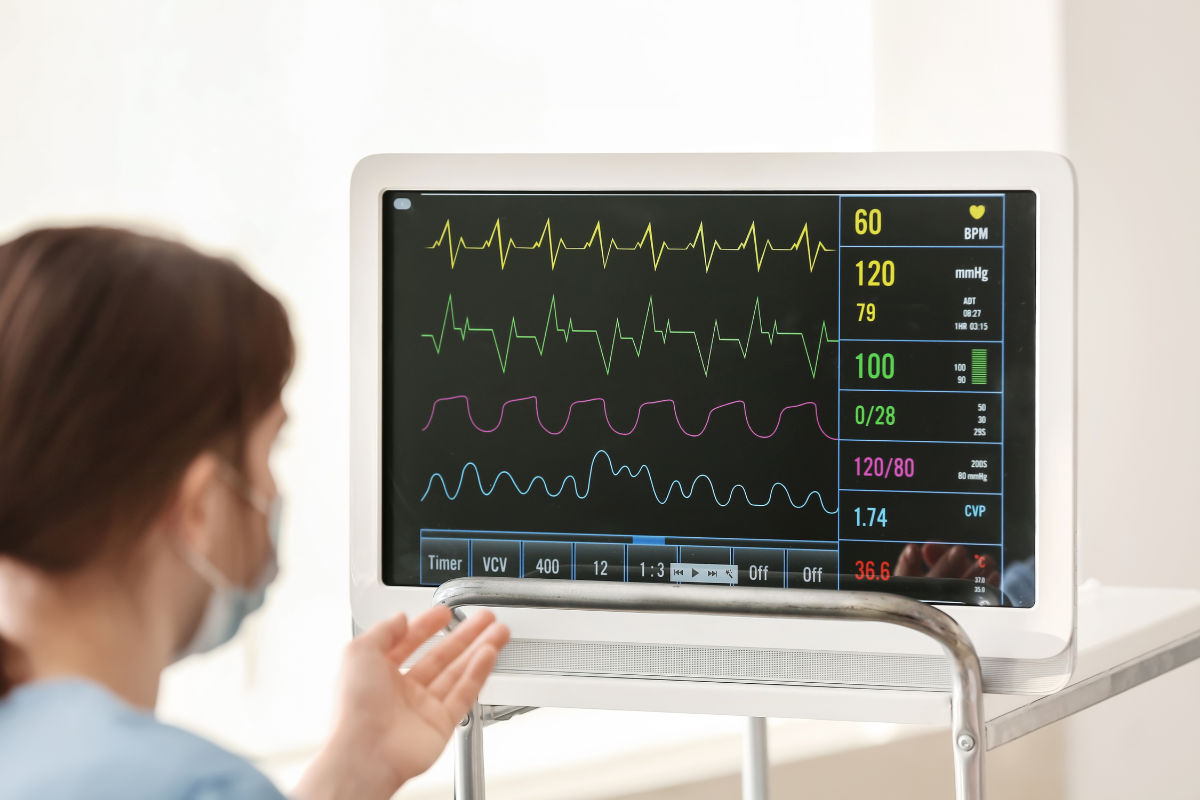
What Do These Tests Diagnose?
An autonomic nervous system test can diagnose a range of disorders affecting the ANS. Any dysfunction, no matter how minor, with the ANS is known as dysautonomia or autonomic neuropathy.
Conditions that cause this type of neuropathy include diabetes, cardiovascular problems, autoimmune disorders, specific medication or medication interactions, and some infections.
Specific conditions that ANS testing can diagnose include:
- Orthostatic Hypotension: A condition where blood pressure drops significantly upon standing, leading to dizziness and fainting.
- Postural Orthostatic Tachycardia Syndrome (POTS): A chronic condition characterized by a significant increase in heart rate when moving from sitting or lying down to standing up, often accompanied by dizziness and lightheadedness. It can also cause gastric problems, vision difficulties, fatigue, headaches, temperature regulation challenges, and trouble concentrating or focusing.
- Small Fiber Sensory Neuropathy (SFSN): A common condition with diabetes that causes tingling or numbness, typically starting in the feet.
- Diabetic Autonomic Neuropathy (DAN): A complication of diabetes affecting the autonomic nerves, leading to issues like gastroparesis, constipation, bladder dysfunction, erectile dysfunction, sudomotor dysfunction, and cardiovascular problems.
- Multiple System Atrophy (MSA): Similar to Parkinson’s, MSA is a rare but quickly progressive neurodegenerative disorder that affects various systems, including the autonomic nervous system.
In addition to specific conditions, ANS testing also identifies an increased risk for hypertension, heart attack, stroke, and sudden death.
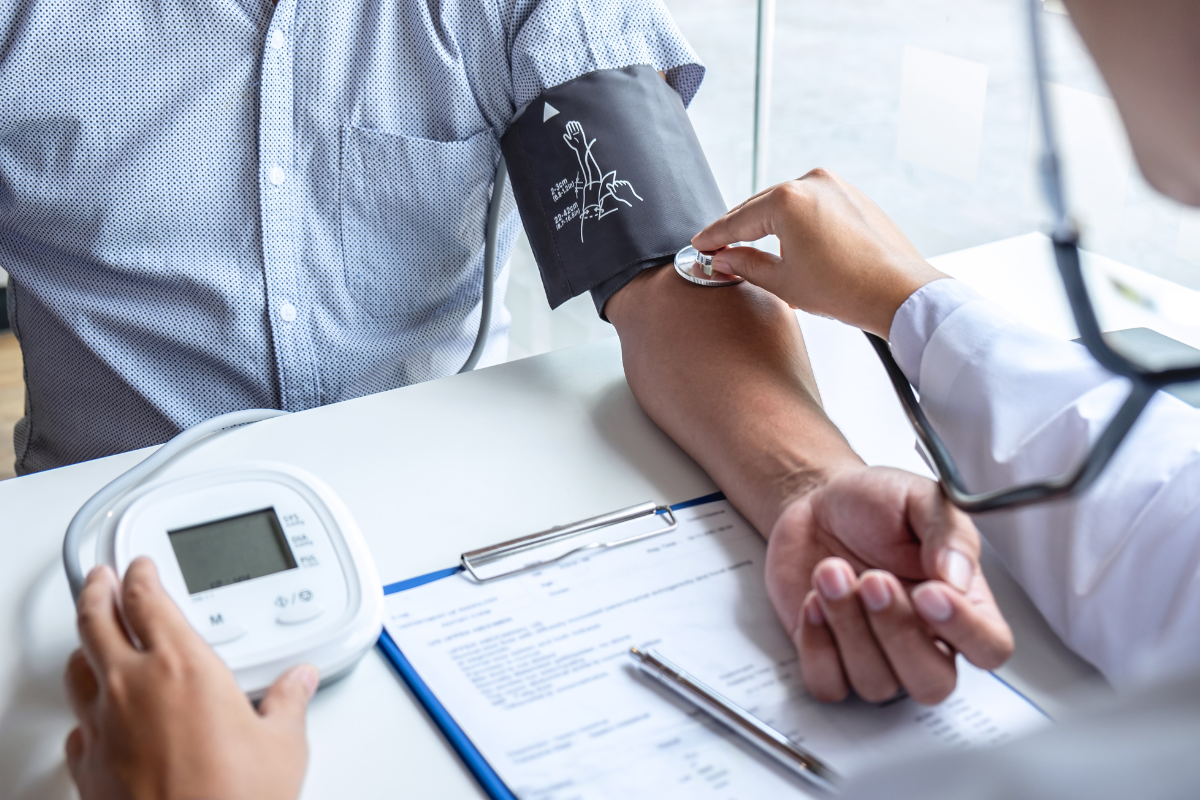
When Should You Have an Autonomic Nervous System Test?
While an autonomic nervous system test isn’t a standard part of a general checkup, your provider may recommend it if you report specific symptoms or have some chronic conditions. Even if your issues seem minor, catching and treating problems that may become much more serious over time is vital.
Symptoms and conditions that may lead your provider to recommend ANS testing include:
- Unexplained dizziness, fainting, or weakness
- Abnormal heart rate or blood pressure
- Unusual shortness of breath with exercise or activity
- Frequent gastrointestinal issues, such as nausea, vomiting, diarrhea, or constipation
- Sudomotor symptoms, such as sudden excessive sweating or an inability to sweat
- Diabetes
- Neurological conditions, such as Parkinson’s disease, multiple system atrophy, and other neurodegenerative disorders that often affect the autonomic nervous system
Again, even if your symptoms seem minor or infrequent, always discuss them with your healthcare provider. It’s better to test for nothing than have life-altering issues go undiagnosed and untreated.

Preparing for ANS Testing
Although ANS testing is noninvasive and generally painless, there are a few essential preparations to remember. Following these will help ensure your safety and produce more accurate results.
- Please review all medications, both daily and ‘as needed,’ with your healthcare provider prior to testing. Some may affect the results and will need to be temporarily discontinued.
- If you have a Pacemaker, please notify your provider before testing.
- Avoid caffeine for 8 hours, alcohol for 12 hours, and nicotine for 3 hours before testing.
- Drink plenty of fluids to ensure you are well-hydrated.
- Wear loose, comfortable clothing—a short-sleeved shirt and shorts are preferred.
- Remove all jewelry from hands and feet.
ANS testing time can vary based on several factors, but most patients require at least 60-90 minutes for their assessments.

Schedule Your Autonomic Nervous System Test Today
Autonomic nervous system testing is a crucial tool in diagnosing and managing conditions related to autonomic dysfunction. These tests provide invaluable insights into a wide range of disorders by assessing the balance and functioning of the sympathetic and parasympathetic systems.
If you experience symptoms like unexplained dizziness, gastrointestinal issues, or abnormal heart rates, discuss the possibility of ANS testing with your healthcare provider. Early diagnosis and intervention can significantly improve your quality of life and help you achieve a healthier future.
